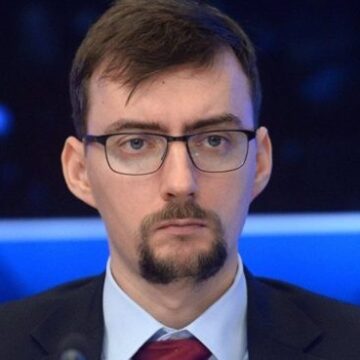The current debate on the world order’s future mostly boils down to two opposite points of view. The first one presupposes that after the Cold War the world has finally transitioned to a liberal world order. Its supporters describe it as a ‘rules-based order’, implying that the rules are laid down by the community of Western states, with its stability shored up by the West’s military, economic, and moral superiority. They avoid calling the world unipolar, instead emphasizing how the liberal model benefits everyone and that it is not poles that are important, but effective rules and the prosperity generated by international stability and interdependence. The other, directly opposite, point of view argues that the liberal world order is unstable and on the verge of a crisis. Its proponents indicate that it is actually a unipolar world order based on the hegemony of the US and its allies. According to this point of view, the unipolar model is unlikely to have any historical chance, being undermined by emerging centres of power like BRICS, Shanghai Cooperation Organization (SCO), and others. They also doubt the efficiency of the rules of the game implied by the liberal model. As an alternative, they see a multipolar (polycentric) world — a community of equal partners, with the UN and other international institutions ensuring its democratic nature.
Interestingly, at least two other models were on the sidelines of the discussion until recently. One of these suggests a world without poles, a chaotic and fast-flowing order, or a war of all against all that goes hand in hand with the collapse of the habitual institutions (from sovereign nation states to classical capitalism). This is a crisis scenario that leads not so much to a new balance as to an all-out reset of the institutions, power, production modes, and international relations. But even though this model wins over by a promise of breaking the mould, it was mostly confined to journalistic and academic writings.
The second model seems more familiar. It suggests building a new bipolarity. Until not a very long time ago, it was courting much scepticism merely by virtue of there being no adequate candidates for the role of the second pole. Unlike multipolarity with its non-explicit rivalry and competition, bipolarity implies a confrontation between two concrete camps. Therefore, this system can be regarded as more structured and stable. However, hardly anybody wanted to lead it until recently, with all ‘aspirants’ preferring the comfort of the post-bipolar world and promoting either the liberal model (EU, Japan, South Korea and others) or a multipolar arrangement (Russia, China, India and others). All the while, each of them was enjoying quite tangible perks that went along with the de facto existing unipolar world.
The problem is that the current international realities are increasingly cutting the ground from under this comfortable environment, inducing crystallization of two camps with a prospect of choosing between them. Contrary to expectations, the key destroyer of the existing postbipolar order is not a new ascending power but a global leader, which, in theory, should be clinging to the status quo tooth and nail. We are witnessing a unique situation in international relations, where a global leader is working hard to transform the existing order, its motive being either the wish to control the change for its own benefit, or the fear, real or imaginary, of the new centres of power, or a series of failures in the control system that generate system errors in key political decision-making. The big question is, naturally, the longevity of what is happening. Some are tempted to shrug off the destructive trends as the eccentric US president’s pranks and hope that things will return to the old rut after the next change of guard in Washington. But the magnitude of developments is evidence that the current trends are unlikely to remain without consequence, the more so that the major players are not what they were before. China is too big for the old order, Russia is too assertive and independent for it, and the EU is becoming increasingly autonomous.
The developments are a nontrivial challenge for Russia’s foreign policy. They are also generating a series of purely research questions. For instance, what will the configuration of the world order be in the future? What scenarios can be expected? How to adapt or how to shape a desired alternative? Answering these will be of extreme importance for transforming Russia’s doctrinal attitudes.
The main problem is that Russia’s prevalent multipolar concept took shape in the late 1990s and early 2000s under the influence of decades-old ideas promoted by Yevgeny Primakov (Russian Foreign Minister in 1996–1998 and Prime Minister in 1998–1999) and his school. These Russian ideas, in turn, took into account the US theories that emerged between the 1960s and the 1980s. In other words, the basic multipolarity (and generally polarity) ideas were generated and evolved before the current tectonic shifts began. However, the same is true of Western theories on the liberal world order, which also came into being amid a different reality. The problem common to the Russian and US (Western) approaches is that they describe the past and may prove of little use for describing the present and the future.
This report will attempt to outline possible ways of adapting the concepts of polarity, multipolarity, and world order to new international realities and draft scenarios for a future world.










